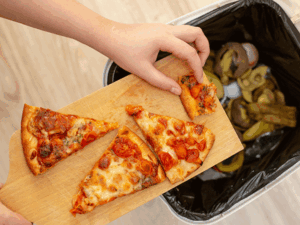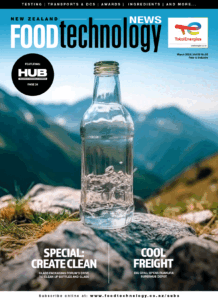 Food waste is in the spotlight again with the United Nations Environment Programme Food Waste Index Report finding globally over one billion meals are wasted every day while nearly 800 million people go hungry. According to spokespeople from Aotearoa Food Rescue Alliance (AFRA) and New Zealand Food Waste Champions (NZFWC), two organisations leading food waste reduction in New Zealand, the report is a stark reminder of the scale and impact of food waste and the need for deliberate and coordinated action.
Food waste is in the spotlight again with the United Nations Environment Programme Food Waste Index Report finding globally over one billion meals are wasted every day while nearly 800 million people go hungry. According to spokespeople from Aotearoa Food Rescue Alliance (AFRA) and New Zealand Food Waste Champions (NZFWC), two organisations leading food waste reduction in New Zealand, the report is a stark reminder of the scale and impact of food waste and the need for deliberate and coordinated action.
“Our nation produces enough food to feed 40 million people, yet every day one in five children are living in households without enough food,” says Iain Lees-Galloway, Aotearoa Food Rescue Alliance’s interim general manager.
Food waste is also a known contributor to climate change. With approximately 10% of global greenhouse gas emissions coming from wasted food, it has been identified as a key action in fighting global warming. “Food waste is solvable and delivers benefits to communities, business and our environment, but requires committed collaboration across the food supply chain,” says Kaitlin Dawson, executive director of New Zealand Food Waste Champions (NZFWC) who are working with government and industry to reduce food waste. “There’s been a significant increase in awareness of food waste and its impacts, but we need government, industry and community providers to work together to turn that awareness into action.”
Dawson says it’s reassuring that the UN Food Waste Index Report identifies public-private partnerships as key initiatives to reduce food waste with the Kai Commitment voluntary agreement, an initiative of NZFWC, counting some of New Zealand’s largest food businesses as signatories including Goodman Fielder, Fonterra, Foodstuffs, Woolworths NZ, and Silver Fern Farms.
“Through Kai Commitment, we are working closely with our partners to reduce food waste within their operations and across the supply chain. A key part of our work is fostering collaboration across industry and sharing of best practices,” she says.
As part of the Kai Commitment, businesses are working to understand, manage, reduce and report their food waste so consumers can be confident these businesses are making tangible progress.
While initiatives like Kai Commitment help prevent unnecessary surplus, food rescue is making an immediate impact by preventing the quality surplus food that currently exists from going to waste, while playing a critical role in feeding those facing food insecurity.
According to Lees-Galloway, demand for food rescue services is higher than ever as the cost of living puts families under added pressure. “Food rescue provides a social solution to an environmental problem, ensuring as much surplus as possible gets used as intended, feeding people, not landfill. Every day our 35 members rescue over 20 tonnes of food from hundreds of businesses across New Zealand. Much of this food is made up of fresh produce like fruit, vegetables, meat and dairy that goes into the food parcels people collect at food banks. That helps improve the nutritional value and quality of food relief. This is particularly important at a time when food banks are becoming inundated by the need for quality nutritious food.
“The food system is complex, with thousands of businesses interacting with each other. A suite of initiatives is needed to deal with surplus and waste at all points in the system. We are working closely to coordinate our efforts with organisations like New Zealand Food Waste Champions 12.3, New Zealand Food Network and Foodprint. We support one another so we can each play our part as effectively as possible,” Lees-Galloway says.
“We encourage more food businesses to partner with us and others working to reduce food waste and food insecurity to help reduce the negative environmental, economic and social impacts of food waste,” Dawson adds.
Businesses looking to get involved can learn more about becoming a food rescue donor here and learn more about Kai Commitment here.






























































































